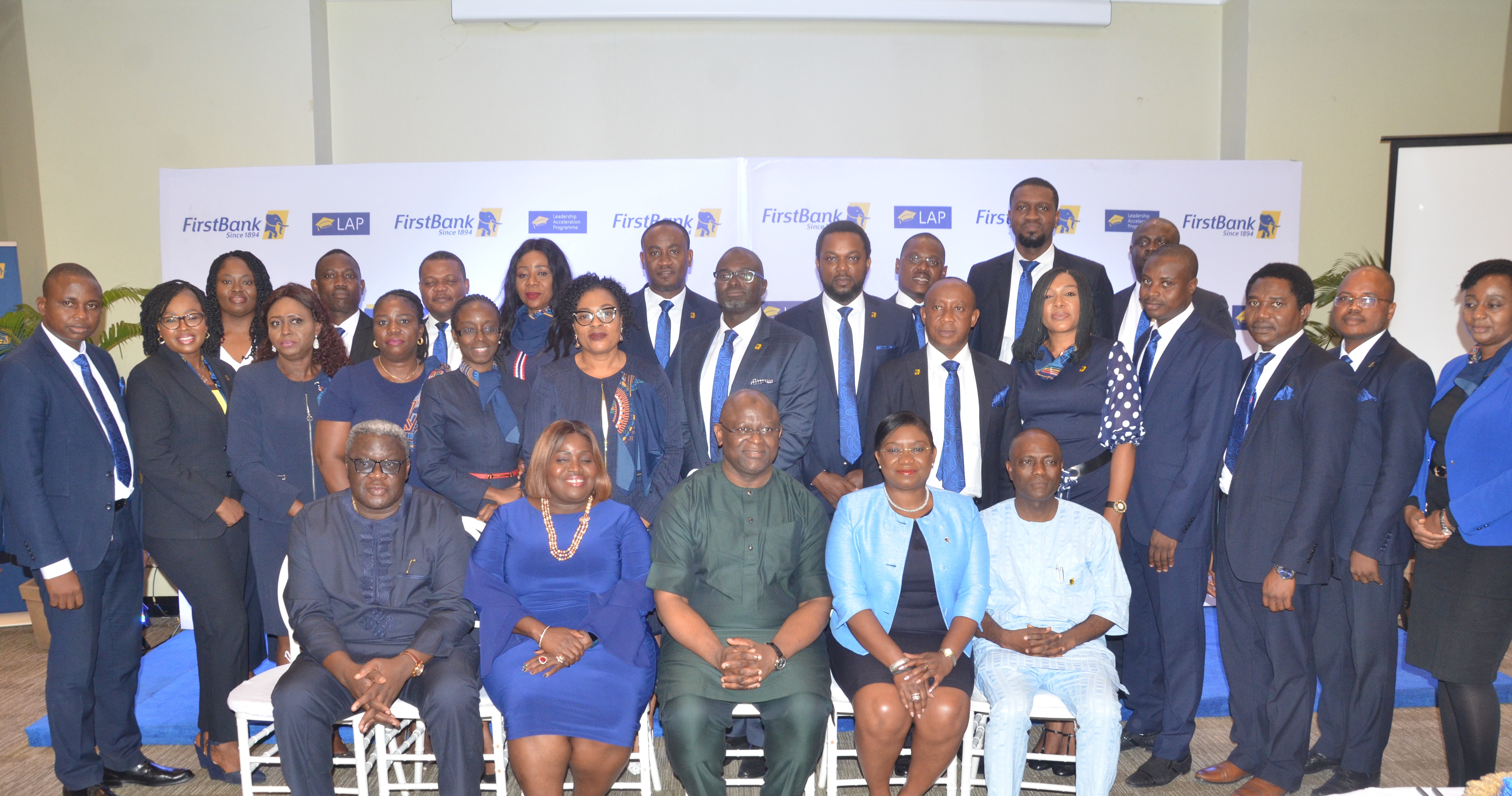Nigeria’s premier Bank and leading financial services provider, First Bank of Nigeria Limited, recently concluded the maiden edition of its Leadership Acceleration Programme (LAP). The event, filled with the smiles and excitement of the 71 graduands was held on Friday, 28 June 2019 at the Four Points by Sheraton, Victoria Island, Lagos.
In furtherance to the Bank’s strategic objective of imbibing and promoting leadership at requisite levels across its staff hierarchy, First Academy – the Bank’s training school and staff academic development institute – developed three core Leadership Programmes aimed at internally identifying and developing high potential talents who could take up the mantle of being the next generation of the Bank’s leaders, thereby building on its 125 years heritage since founding. One of these programmes is the Leadership Acceleration Programme (LAP).
The LAP was specifically designed to develop and infuse critical leadership and change agents within the middle management staff cadre of the Bank. It is an intensive skill development programme structured to enhance core leadership and business competencies of elite staff within the Bank. It consists of three instructor-led modular periods adopting a blend of classroom lectures, experiential activities, flipped learning strategies and peer-to-peer discussions to develop the desired talent pool.
Reiterating on the need for the LAP graduands to leave no stone unturned at painstakingly developing themselves thereby promoting excellence in the Bank and their circle of influence – beyond the industry – the Chief Executive Officer, First Bank of Nigeria Limited, Dr. Adesola Adeduntan, said “We are in the service business where what makes the difference is the quality of the people you have working for you. The onus is on us as the leaders of the institution to invest in our people, so that they will begin to have the right insight, capability and attitude which give the ability to compete and win at the market place. The primary reason we have embarked on this programme, is because of long term sustainable development of our internal talents” he concluded.




 Premier League
Premier League